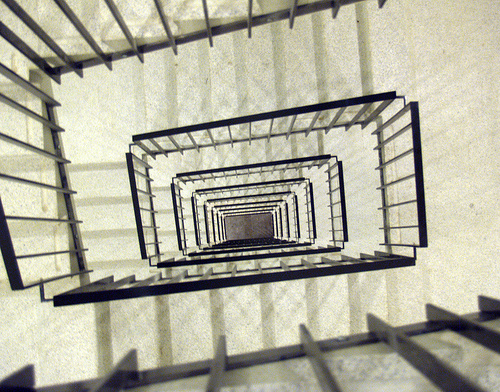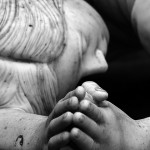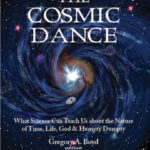We run our website the way we wished the whole internet worked: we provide high quality original content with no ads. We are funded solely by your direct support. Please consider supporting this project.

The Future is Not Like the Past For God (or Us)
Image by seier+seier via Flickr
Everyone agrees that we are not free to change the past. No sane person would claim, for example, that I can now make any free choices about whether John F. Kennedy will be assassinated or not on November 22, 1963. This deed, like all past deeds, has already been accomplished.
Now consider, if God has always foreknown what I will do in the future, then he certainly knew this on November 22, 1963. His knowledge of my future would thus have been among all the facts of reality that God knew on November 22, 1963.
Suppose for the sake of argument that God decided to reveal to us everything he knew to be true on November 22, 1963. Suppose that on this date God sent down a book from heaven containing all of this information entitled God’s Book of Known Facts. Now, if everything you will ever do in the future is listed in this book given on November 22, 1963, and if you are not free in relation to anything in the past, is it not obvious that you could not be free with regard to anything in your future as well? Your whole future is settled in the past—right there in God’s Book of Known Facts.
Suppose you read about your future in this book. Let us suppose that among many other things, you read that you will choose to cheat on your taxes on April 12, 2017. This was written on November 22, 1963. Wouldn’t you now feel the truth that you are no more free to decide your future than you are free to change the past—for you now see your future is past? How could you possibly believe that it was still up to you to resolve whether or not you would cheat on your taxes on April 12, 2017, when you know it is not up to you to resolve any settled fact about November 22, 1963?
Think of it this way. Freedom is the ability to choose between various possibilities. You are free to cheat on your taxes or not only because it is possible for you to cheat on your taxes or not. But if the fact that you will cheat is written in God’s Book of Known Facts, and God can’t possibly be wrong, then it is not possible for you not to cheat on your taxes. Hence you cannot be free to choose between the possibilities of cheating or not cheating. In other words, you can’t be free.
Someone might respond by claiming that God would not reveal such information precisely so that we will remain free. But this response is simply admitting that we only feel free because we are ignorant of the truth. If we are truly free, morally responsible agents, our freedom cannot simply be a feeling based on ignorance. If we are truly free, our ability to determine our future must be rooted in reality. It must really be the case that you could choose to cheat or not cheat on your taxes. And this means that what we will freely do cannot be among the facts recorded in God’s Book of Known Facts on November 22, 1963.
If we are truly free, God’s Book of Known Facts must be open to additions recorded with each free decision we make, just as God “added” fifteen years to Hezekiah’s life in response to his prayer (2 Kings 20:6). If we are truly free—if this is in fact part of the way reality really is—there can be nothing beyond possibilities to be recorded until we choose to act on one of those possibilities. We freely create the fact and then God records it.
If we possess authentic self-determining freedom, then our future must be fundamentally different from our past. The past is unalterable. There are no options for us, which is why we are not free in relation to it. There are not “ifs” or “maybes.” Everything about the past is definitely this way and definitely not any other way. If we are free, however, our future must be different from this. It must in part consist of realities that are possibly this way or possibly that way. Our future must be, at least in part, a realm of possibilities. And the God who knows all of reality just as it is and not otherwise must know it as such. He is not only the God of what will certainly be, he is also the God of possibility.
—adapted from God of the Possible, pages 120-123
Category: General
Tags: Free Will, Future, God of the Possible, Open Theism, Possibility, freedom
Topics: Providence, Predestination and Free Will
Related Reading

Why Prayer Matters
Two questions about prayer: What possible difference can prayer make to an all-good and all-powerful God? Why would an all-wise God leverage so much of his will being done on earth on whether or not his people talk to him? These questions began to be resolved for me when I began to think about prayer…

A Calvinist and an Arminian walk into a bar…
Toby Bradbury via Compfight Roger Olson posted A Conversation between a Calvinist and an Arminian about God’s Sovereignty that we thought was dead on. In fact, we kind of wonder if Roger is bugging some of the conversations we’ve had. Déjà vu much? And since Roger has argued that Open Theism should be included under the broader umbrella of…

Is it true you’re an “Open Theist” and that you don’t think God knows the future perfectly?
I am an “Open Theist” – though I honestly don’t care for the label, because as I’ll show, the uniqueness of this view isn’t in what it says about God but in what it says about the nature of reality. (I think it would be better to call us something like “Open Futurists.”) In any…

What is the significance of 1 Samuel 15:10?
In light of Saul’s sin the Lord says, “I regret that I made Saul king, for he has turned back from following me.” Common sense would suggest that one can only regret a decision one makes if the decision results in an outcome other than what was expected or hoped for. If God foreknows all…

Roger Olson’s Review of The Cosmic Dance
Today we wanted to share a review of The Cosmic Dance by esteemed theologian Roger Olson. You can check out an excerpt below or you can read the whole review here. You can place an order for The Cosmic Dance here. The Cosmic Dance is Greg’s (and friends’) attempt to present the case that the best contemporary science supports viewing…

The (Spiritual) War on Terror
Jesus’ ministry was a ministry not of resignation but of revolt. He was about revolting against the cruel tyranny of a world ruler (Satan) that was oppressing God’s people. He was about seeking to give back to people, and to win back for his Father, what the enemy had stolen and destroyed. He was about…
